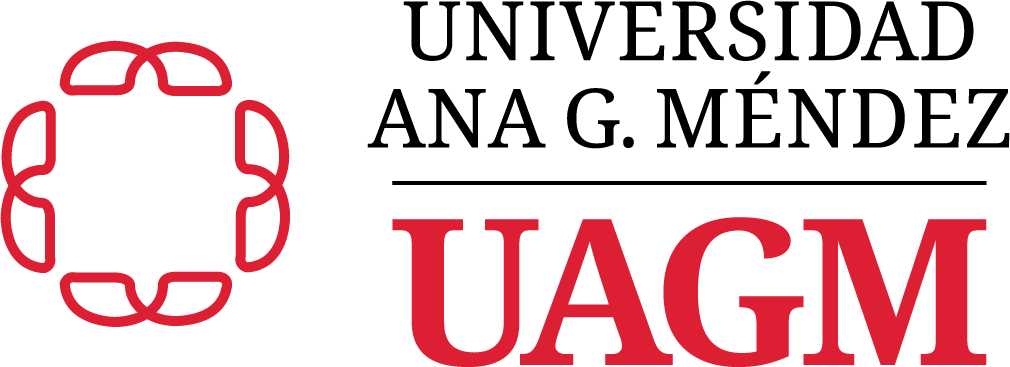
[Don’t hate. Read this first, instead]
[I’ve been marinating on this because
I don’t know if this is a response, a commentary,
an addendum, a hashtag, or a word vomit
of “the dinner table” in Sara Ahmed’s
nearly perfect article[1].
Vocabulary and imagery will be borrowed,
consider this the bibliography.
Also, Beyoncé’s album BEYONCÉ]
It begins with a table, four chairs, two of them empty. A family gathers around it or, you could say, a family gathers around it. Best friend on one side, best friend on the other. The room is a classroom, the table is a desk. There is no class in session, closed books on the surface, but there is a bottle of water and gum, and a conversation taking place.
Their banter, the two students’, not the objects, this isn’t a Disney movie… Scratch that. It might just be, but first [letmetakeaselfie(sotospeak)] some details about these two: It has been a long time since these two students have had a polite dialogue. There is no longer a need for decorum between them, a history of day-drinking has taken care of that. They both wear glasses. They are both women. They are both in their 20s. They are both feminists. They are both Comp Lit majors. They both read the same article. And, surprise-surprise, they both agree.
Herein they move in unison, section by section, in self-sabotaging fashion, poking loopholes, and rushing to patch those loopholes up. We know how to party. Second, we are in need of a sequence—an identified chain of events that can serve as a possible sketch for this conversation—, a forest—if you will—that can lead us to the castle. We settle on Language-Unhappiness-Feminism-Willfulness. Mind you, we’d had a conversation about language and censorship before fueled by a 2013 SourceFed Nerd #TableTalk. I’d watched this morning and was upset about, but that is a story for a later time. For now, let’s just jump into it and accept (for the sake of argument) that certain things are true. These things are: That language is inherited. That unhappiness is imminent. That feminism is inevitable. And that willfulness is necessary. (This is my entire paper, but if you have a couple of minutes, I’ll bore you with the deets). We will also speak of cisgender daughters (I apologize, my queer friends, for this heteronormative parenthesis).

I
If we believe that language is inherited, then we imply it is familial (it’s a word). If we imply it is familial (see previous statement), then we understand it has a father and a mother from whence it’s born. The father here provides and speaks both active things. The mother cares and listens, both passive or only active insofar. They respond to an initial action: reactions. Our language, then, given by the father and our sensibilities given by the mother; our language, hence, masculine and our emotions, feminine. We remind ourselves here that we are still speaking of daughters, which is to say, we are talking of mothers.
Our mothers speak a masculine language, as well.
Ahmed writes about dinner with her dad, mom, and sisters as being the time during which unhappiness was first experienced, but what happens when there is no traditional family dinnertime? Traditional here twofold, meaning both a traditional dinner every day on a dinner table surrounded by all members of your family, and a traditional familial composition that includes a dad, a mom, and an offspring (in this case, a daughter). What if the family doesn’t sit together to eat in a kind of circle? What if they sit in a line in front of the television in silence? Or, if they eat in their respective bedrooms? And, what if there is not a father present? What if the family consists of a single mother as the authority figure?
II
But first (letmetakease… I’m kidding, I’m done), let’s consider the possible (probable?) degrees of separation between the parent and the daughter. In silence. Because I don’t want to write about each of our personal Iliads, however, it is important to note that my parents are still married and in love (I asked), and she has a (not at the moment) single mom by choice (i.e. the mother chose to end the romantic relationship with the father, without intervening in the relationship between the father and the daughter). It is also important, it seems, to note that neither of us have completely fantastic relationships with our fathers (but, really, who does?).
We return to the table. Ahmed writes of first experiencing unhappiness during dinner with her family, a dinner in which her father asks questions that she and her sisters rush to answer, while her mother mostly sits in silence. Let’s suppose this is a common occurrence in homes in general. Let’s suppose, too, that families who don’t comply are less common. Now, let’s get the easier things out of the way. In a “traditional” family home, regardless of whether the family sits together or not, inequality will become apparent to the daughter insofar she begins to uncover the power dynamics between the parents, insofar she is omnisciently expected to participate politely. At the dinner table, in a polite conversation between the father and her; in front of the TV, for example, while watching as a family the programming the father has chosen for all, even when the choice is the consensus, the father holds the remote. Once inequality is experienced by the daughter, subconsciously or consciously, she will become unhappy, which is to say a feminist. The catch, what if the relationship between the father and the daughter is a strong, understanding, loving one? Then that elusive inequality and subsequent unhappiness will be experienced both through language: in the microaggressions that are undeniably embedded in a masculine language, or elsewhere in the presence of someone else’s dinner table.

The separation between the father and daughter, or the witnessing of someone else’s separation between them and their father, will mark the feminist awakening. In the absence of a father, a mother will often expand to occupy the empty space, acting infamously as “a mother and a father”, as if a mother alone weren’t enough. The daughter isn’t then, by default, excluded from that unhappiness because she will either be unhappy about the absence of the father, or she will experience that unhappiness from the mother through language. This unhappiness is more difficult to identify, and is often confused. Daughters of single homes will often believe themselves to be feminists, while subconsciously replicating blatant misogyny because they’ve lived a life all through which the authority figure is another female. If there is no recognition of the gigantic part language plays in their lives, their feminism, or their feminist lives, there will be yet another unhappiness to be experienced. There is no escape. (Wake up, queer friends, we’re back. Heteronormative parenthesis over).
III
Feminism is inevitable.
IV
There is no escape is not the right thing to say. Feminism isn’t something we need to escape from. It isn’t scary, it isn’t evil, it isn’t ill-intentioned. It’s just feminism, it’s equality for all. It’s clear, assertive, fair, and long-fucking-overdue. If it is selfish, it’s because it’s had to be, like stealing from the rich to feed the poor can be selfish. If it is uncomfortable to talk about, it is only uncomfortable to talk about in the way it can be uncomfortable to do something for the first time, and we are far and away from being the first people to talk about it. So, why is it still uncomfortable? It’s literally like sharing a bed with someone that monopolizes the blanket in their sleep. The blanket is big enough to cover both people, one doesn’t need to buy another blanket to be warm; both can share the same blanket. One shouldn’t have to carefully wake the other up to ask to be covered by it. A food metaphor would’ve probably been more appropriate here, but it would’ve circled around a starving economy anyway. We shouldn’t follow the rules of Fight Club (oh, shit!). It shouldn’t be a question of ownership and permission and consideration and compliance and tolerance. It shouldn’t even be a question, but as long as it is, feminists (all of us, cisgender people and LGBTQ) will have to do the Ahmed dance, and twerk it to the Killjoy Jam.

V
Here is where I clarify some things.
1. Those of us who aren’t Caucasian also experience unhappiness outside of the home, but that absurd disregard for social justice only further reaffirms our feminism. It also means, unfortunately, that "our" dance "particularly" cannot miss a beat and must always be on point. Luckily (a point at the expense of a stereotype "à la Guaya Guaya"), we have rhythm on our side.
2. Number 1 applies for those who haven’t, and still don’t have had a home.
3. Number 1 applies for those of us who are queer. We can take back the word "daughter" to mean whoever falls outside of heteronormativity.
4. Straight cisgender sons experience this unhappiness through language and other people’s dinner tables, and join the party as well. I’m aware. However, let’s shift the conversation from the past 20 centuries CE to the next 20 ones: We’ve talked enough about you guys. We’re definitely not forgetting about you. But you don’t get a cookie for dancing on time.
5. Yes, all these things have probably been talked about before. I’m not sitting here feeling myself like Beyoncé after the digital drop, but the important thing is to participate. That’s what my professor says.
6. I actually don’t like the Beyoncé album that much, I have my musical issues with Beyoncé, but I admire her prowess. You have to, (I mean), she woke up like THAT. I used to think I didn’t like it because her feminism seemed limiting, exclusive, privileged, and capitalizing on a civil rights movement that keeps gaining traction and visibility just to sell a couple of albums. I still think that, but that doesn’t mean she is a fake or bad feminist. (I really hate it when we qualify people’s feminism, it’s so stupid, mainly because if this were solely a men’s movement, nobody would think to question its intensity). She still is one of the few artists with that large a forum that has openly expressed her feminism. But she also doesn’t get a cookie. Just as well, I don’t have an oven.

...
It begins with a table. A new one, one we have built ourselves, you can learn anything from YouTube these days. It’s real wood, collapsible, and portable. On one end it has pegs (hey-oh!), on the other, holes (double hey-oh!... I’m mature) to attach to other tables we might come across. We’ll lay tables end-to-end-to-end, and we’ll cover them with chips and dip to munch on, while we exchange silly unedited stories. No shame. We’ll circle dance till the end of time. Or, morning, whichever comes first. (#SURFBOARD).
Notas:
[1] Ahmed, Sara. "Feminist Killjoys (And Other Willful Subjects)." Polyphonic Feminisms: Acting in Concert, S&F Online, issue 8.3 (Summer, 2010), The Barnard Center for Research on Women.
Lista de imágenes:
1. Livio de Marchi, Basco e stivali cowboy
2. Livio de Marchi, Divano Lui & Lei
3. Livio de Marchi, Borsetta in noce con cassetti e Bombetta
4. Livio de Marchi, Reggicalze e Sottoveste
5. Livio de Marchi, Stivaletti con laci e Cappello da donna

